Business
I Started as a Camera man.. passed through thick and thin to get to this stage – Planet TV Owner,Wale Akinlabi

Planet TV is a musical channel on GOTV transmitting to the world from south Africa, a couple of weeks ago an affiliation kicked off in Nigeria transmitting from onward building in oregun, ikeja Lagos. The president of the planet image communications both in south Africa and Nigeria is a young Nigerian that has traveled far wide and especially through every nook and cranny of African continent promoting both Africa and Nigeria culture through selling our musical contents. Sahara weekly had the honor of speaking one on one with Mr Wale Akinlabi a man of vision and focus on how it all began and how it has been so far. Enjoy….
Sw: can we meet you sir?
Wale Akinlabi: my name is wale akinlabi the president of planet image communications,the owner of planet TV on GoTV channel 37 and good morning africa on africa magic
Sw: kindly tell us your background
WA:I hail from oyo alafin in oyo state and happens to be the first child in a family of seven. I studied theater arts from lagos state university,bachelor of arts(BA)visual & performing arts, I’m married with 2 beautiful kids from the most beautiful woman(smiles)
Sw: Recently you unveiled planet T.V a music channel on cable network in nigeria apart from the planet TV in south Africa,kindly tell us how and when planet TV started?
WA: Planet TV actually originated from Nigeria. I started the company in 1990 but as a one man business there was not much to write home about . So in year 2000 after resigning my appointment from where I was working I went into full operation.
Sw: As at that time were you still in Nigeria?
WA: I relocated to south africa in 2004,the beginning in south Africa was also not rosy. I was just there with nothing but just hoping for the best,in 2008 things started improving and I got planet image registered
Sw: earlier you talked about resigning your appointment to fully concentrating on planet TV from which company did you resign?
WA: I was working with Audio visual first( AVF) who actually owns this facility before resigning in year 2000
Sw: For you to set up planet TV in south Africa you must have recorded a huge success?
WA: (smiles) we still can not deny the fact that planet TV has come of age inspite of the fact that we still target the sky as our limit
SW: what makes planet TV different from the others ?
WA: we strive to stand ahead of others in our programming, we target both the youth and the matured audience and try to balance the two. As for our picture quality, we broadcast with HD and also transmit with the most powerful and effective transmitting machine from South Africa which is the latest technology in terms ot transmission, we are only the only one using it in Nigeria while all others make do with satellite dish which is not always reliable, when it rains the signal becomes unstable.
Sw: that is quite wonderful!!!
WA: that is not all,we are the first cable TV channel with live interaction,so we could feel the pulse of our viewers and give it instant attention,they tell us what music to play and we put it on their screen immediately …
SW: what prompted the decision to have a live interactions while others are not so inclined….
WA: like every other youth, everybody has a vision but the way we actualise our dreams is what brings about the difference, it depends on how individual go by it. Another point of note is the fact that we all have dreams but not all are given the grace to actualise our dreams. All in all I give glory to God for making my dreams come to life.
SW: life is not always a bed of roses, along the line the road must have been rough and bumpy, what are the challenges?
WA: it has not been an easy journey all through. I passed through thick and thin to get to this stage . Like I told you earlier,1990 till 2000 when I resigned at my working place to fully concentrate on my own project,I was not getting anything but only sacrificing time, energy and capital,the situation continued till we left Nigeria’s shore in 2004
SW: once in south Africa,things turned around for good?
WA: Not immediately ,the first few years in south Africa was full of unrewarding efforts making it the same old story, it was self determination coupled with patience and lot of sacrifice that saw us through and we had an upturn in the business. My brother the challenges were tough and discouraging but above all I give all the glory to God for where we are today..
Sw: let’s get on how you found your self in the media world,was it a dream or somehow accidental?
WA: I actually started from the scratch. Its a long story but I’ll take time to tell you to the barest details
SW: Go on,I’m all ear sir?
WA: (sigh) I passed through all aspects of production
,Started as a cameraman, I later moved to Galaxy TV owned by Steeve OJO, I was working as an editor,I was one of the first set of people that built and developed galaxy tv in ibadan, I trained virtually all the editors and also doing the broadcast. One thing I can say about steeve ojo is the fact that he would not tolerate half measure . He made me work hard and every body said he was using me but the fact remains that I was building myself morally,physically and technically. He employed me as an editor but made me understand professional camera handling. We rotate different departments,it was him that turned me into an animator, my dexterity on it with time made all my friends call me animation,it became my nick name .
SW: so you moved from minor camera operation to editing and from there to animation?
WA: you are right,it was when I moved to AVF that I became content producer
Sw: Hmmm Jack of all trades- (cuts in)
WA: master of all (General laughter) so imagine you going through all these processes,knowing almost everything in all facets of it. Setting up your own company will no doubt be an easy thing.
Sw: so in one word experience has really worked positively for you ?
WA: exactly after knowing all the rudiments of each departments nothing should stop one from reaching the sky. When I started the planet TV because I could do everything I made myself the capital. I would do the capital work and later edit the stuff, after editing I would send the content to where I want it to go . It was really a humble beginning.
SW: Planet TV having been on GoTV for couple of years what positive impact have you made on Africa magic?
WA: I myself have made positive impact that would linger on for quite a long time. Good morning africa which is totally one of the best breakfast show in the continent of africa is my brain child ,it started in 2009 in south africa . After watching africa magic for a long time,I conceptualized the program and started selling the content for africa magic…
SW: ok ,that was when you started selling content for them ?
WA: Nooo…I started selling content for them in 2004,before the good morning africa, I was commission to get contents for them so I started producing small small contents like the ”star zone featuring Nigerian stars on their channel, growing time, weekend plus,home trend,chillers,design & life style , design & automobile and so on …
SW: that is quite a lot sir but before I go, to every hard working and commitment there must be one or two benefits or let me say reward, have you ever been awarded before ?
WA: we give all Glory to God!to God be the glory I have been awarded the following accolades!!(1) Best television producer with the most african content 2012 by african achievers award at kings college united kingdom, (2)media excellence 2011by leaders voice magazine south africa,(3)entrepreneur of the year 2011 by Applause magazine united kingdom,(4) Heritage award 2014, excellence media practice & profound commitment to success 2014 by supreme magazine. And by the grace Of God more are still coming our ways…
SW: Whao!!! what an achievement! So at this juncture sir what would you tell those who aspire to become a TV channel owner like you?
WA: patience,endurance and sacrifice because it can never be an instant success,it takes a whole lot of time. But with God All things are possible
SW: thank you very much sir for your quality time….
Business
Renewed Hope Ambassadors Inspect RHA Secretariat
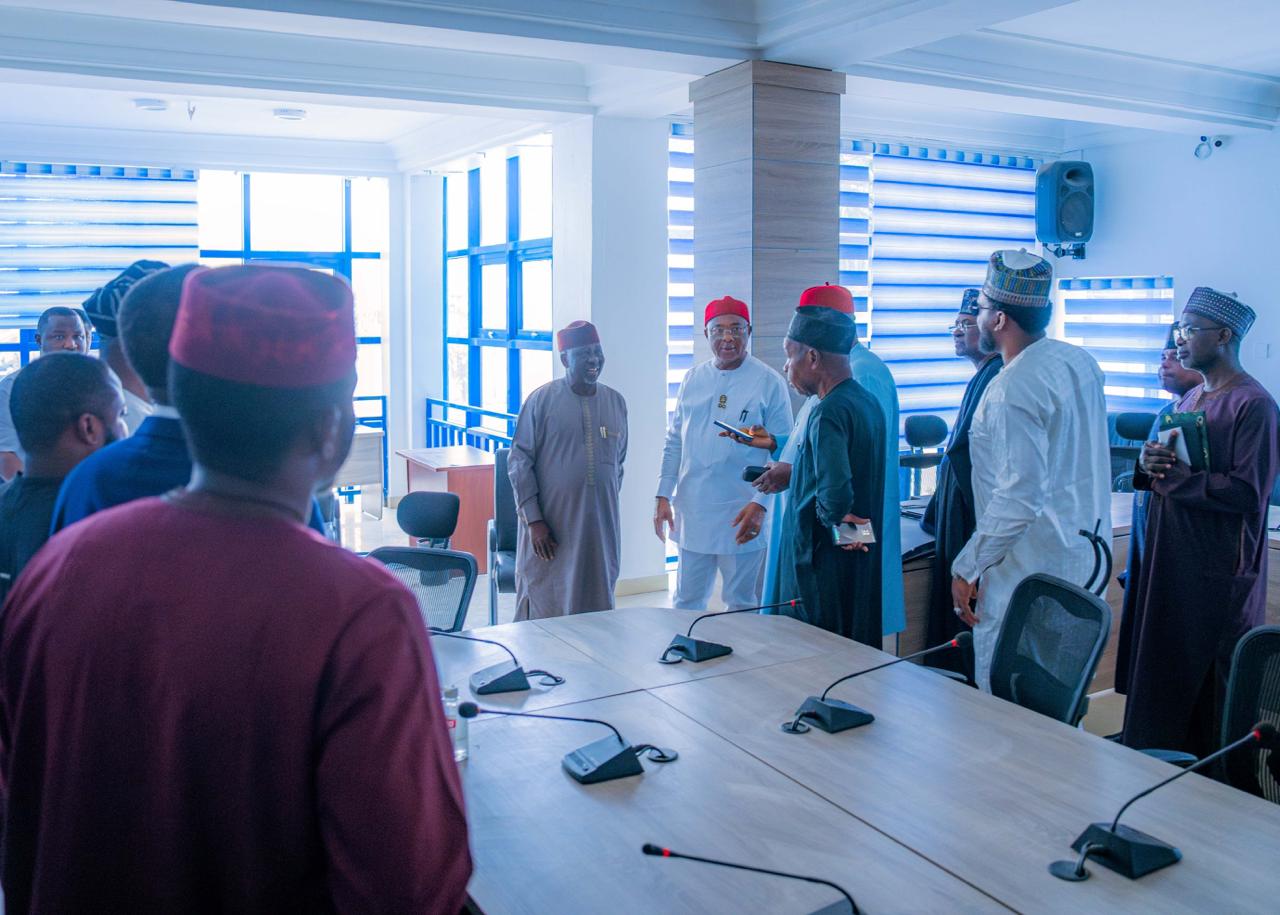
Renewed Hope Ambassadors Inspect RHA Secretariat
Renewed Hope Ambassadors, led by its Director-General and the Governor of Imo State, Hope Uzodinma, alongside Zonal Coordinators (NW, NC, SE), the Media & Publicity Directorate, and other key stakeholders, inspected the RHA Secretariat two days after President Bola Tinubu unveiled the Renewed Hope Ambassadors grassroots engagement drive in Abuja.
Business
Harmony Gardens’ Ibeju-Lekki Portfolio Crosses $1bn

Harmony Gardens’ Ibeju-Lekki Portfolio Crosses $1bn
Harmony Garden & Estate Development Limited has expanded its development activities across Ibeju-Lekki, pushing the projected long-term value of its estate portfolio beyond $1 billion.
Led by Chief Executive Officer Hon. Dr. Audullahi Saheed Mosadoluwa, popularly know Saheed Ibile, the company is developing seven estates within the Lekki–Ibeju corridor. Details available on Harmony Garden & Estate Development show a portfolio spanning land assets and ongoing residential construction across key growth locations.
A major component is Lekki Aviation Town, where urban living meets neighborhood charm, located near the proposed Lekki International Airport and valued internally at over $250 million. The development forms part of the company’s broader phased expansion strategy within the axis.
Other estates in the corridor tagged as the “Citadel of Joy” (Ogba-idunnu) include Granville Estate, Majestic Bay Estate, The Parliament Phase I & II, and Harmony Casa Phase I & II.
With multiple projects active, the rollout of the Ibile Traditional Mortgage System, and structured expansion underway, Harmony Garden & Estate Development Ltd continues to deepen its presence within the fast-growing Ibeju-Lekki real estate market.
Business
BUA Group Showcases Food Manufacturing Strength at 62nd Paris International Agricultural Show
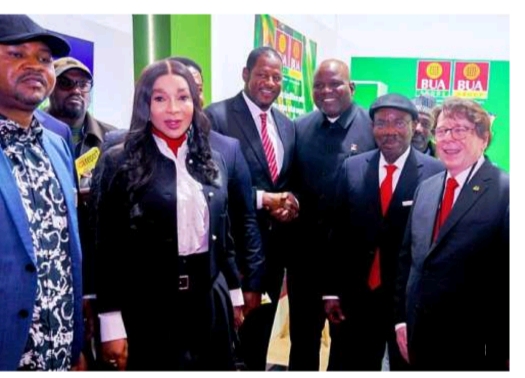
BUA Group Showcases Food Manufacturing Strength at 62nd Paris International Agricultural Show
BUA Group, one of Africa’s leading diversified conglomerates, is maintaining a strong presence at the ongoing 62nd edition of the Paris International Agricultural Show in France, participating as a premium sponsor and supporting the Nigeria Pavilion at one of the world’s most respected agricultural gatherings.
The 62nd Paris International Agricultural Show, taking place from February 21 to March 1, 2026, at Porte de Versailles in Paris, convenes global leaders across farming, agro processing, technology, finance, and policy. The event serves as a strategic platform for industry engagement, knowledge exchange, and commercial partnerships shaping the future of global food systems.
BUA Group’s participation reflects its long term commitment to strengthening the entire food production value chain. Through sustained investments in large scale processing, value addition, and branded consumer products, the Group continues to reinforce its role in advancing food security, industrial growth, and regional trade integration.
Speaking on the Group’s participation, the Executive Chairman of BUA Group, Abdul Samad Rabiu CFR, said, “BUA’s presence at the Paris International Agricultural Show reflects our belief that Africa must be an active participant in shaping the future of global food systems. We have invested significantly in local production capacity because we understand that food security, industrial growth, and economic resilience are interconnected. Platforms like this allow us to build partnerships that strengthen Nigeria’s competitiveness and expand our reach beyond our borders.”
BUA Foods, a subsidiary of BUA Group, maintains a strong footprint in flour, pasta, spaghetti, sugar, and rice production, serving millions of consumers within Nigeria and across neighbouring African markets. The Managing Director of BUA Foods, Engr. Abioye Ayodele, representing the Executive Chairman, is attending the event at the Nigeria Pavilion, engaging industry stakeholders and showcasing the company’s manufacturing capabilities.
Also speaking at the show, Engr. Ayodele stated, “BUA Foods has built scale across key staple categories that are central to household consumption. Our participation at this Show allows us to demonstrate the quality, consistency, and operational strength behind our products. We are also engaging global stakeholders with a clear message that Nigerian manufacturing can meet international standards while serving both domestic and regional markets efficiently.”
The Show provides BUA Group with an opportunity to deepen trade relationships, explore new export pathways, and reinforce Nigeria’s growing relevance within the global agricultural and food ecosystem.
BUA Group remains focused on building enduring institutions, expanding productive capacity, and positioning African enterprise competitively within global markets.
-

 celebrity radar - gossips6 months ago
celebrity radar - gossips6 months agoWhy Babangida’s Hilltop Home Became Nigeria’s Political “Mecca”
-

 society5 months ago
society5 months agoReligion: Africa’s Oldest Weapon of Enslavement and the Forgotten Truth
-

 society6 months ago
society6 months agoPower is a Loan, Not a Possession: The Sacred Duty of Planting People
-

 news7 months ago
news7 months agoTHE APPOINTMENT OF WASIU AYINDE BY THE FEDERAL GOVERNMENT AS AN AMBASSADOR SOUNDS EMBARRASSING










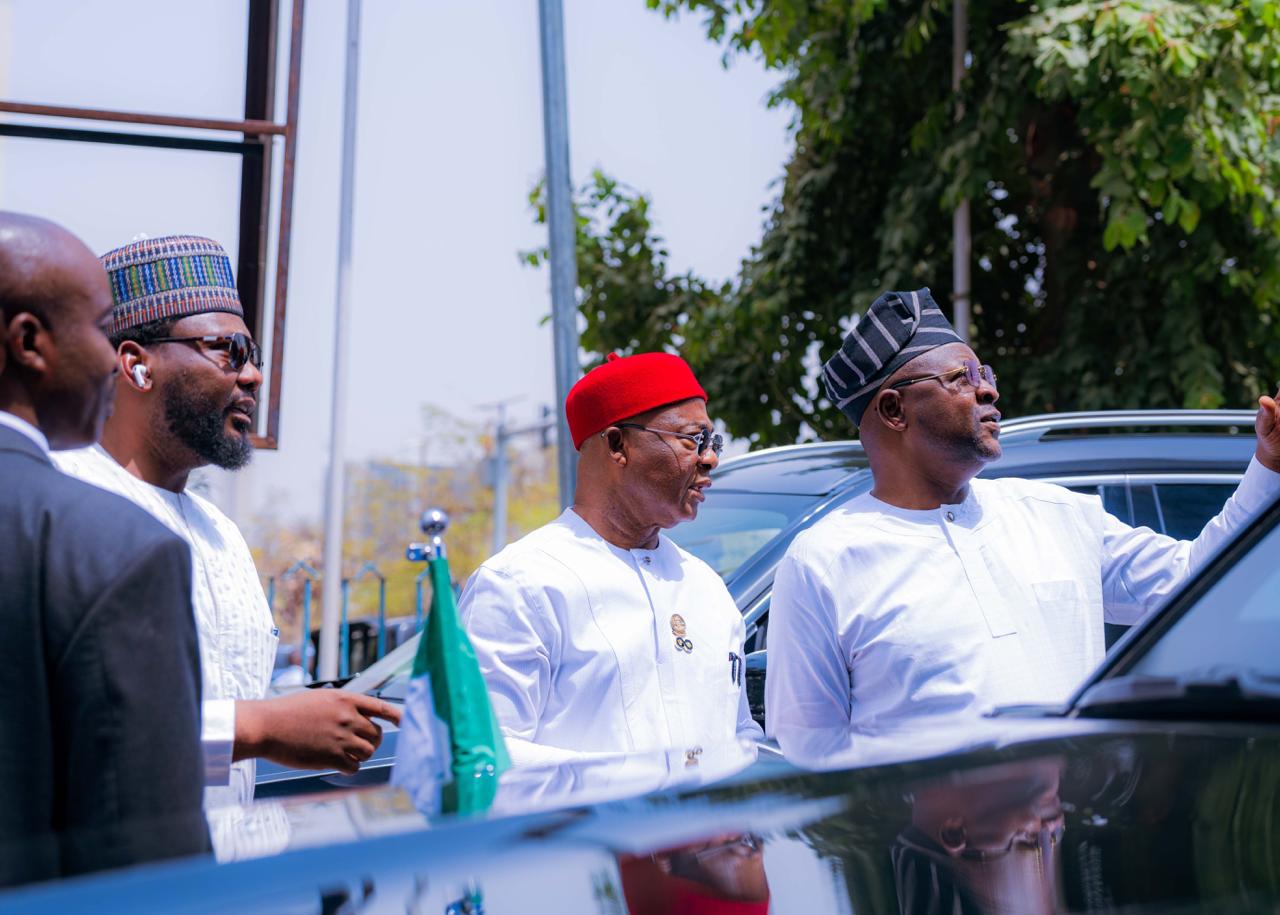
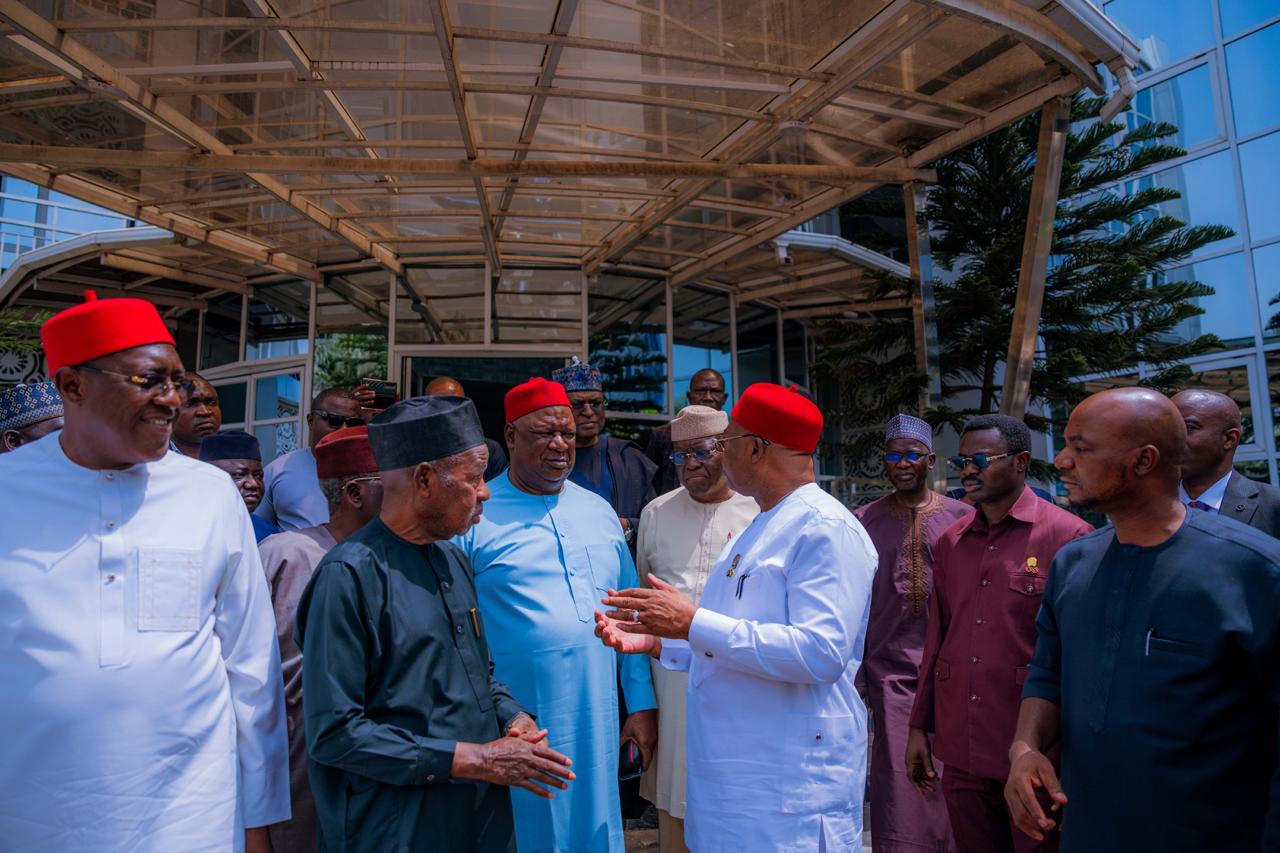
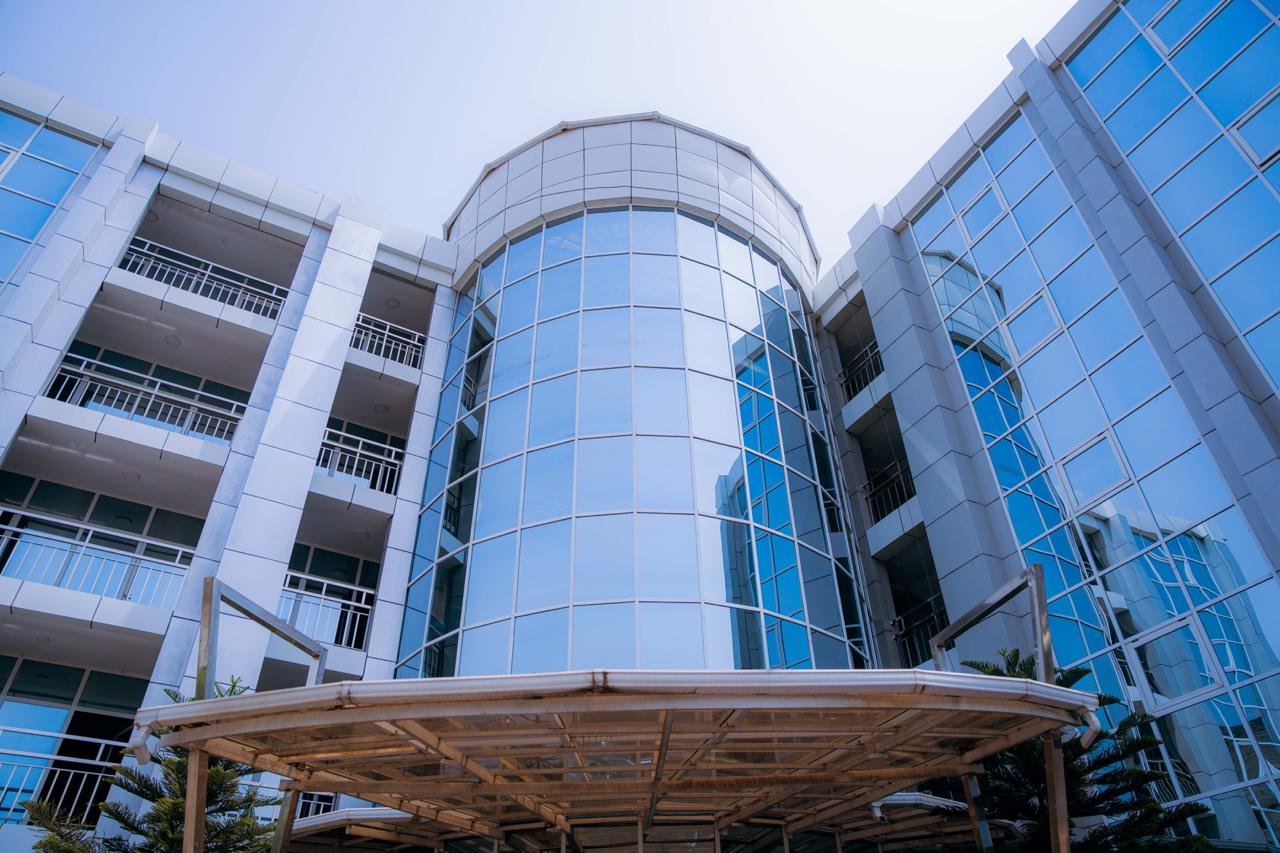
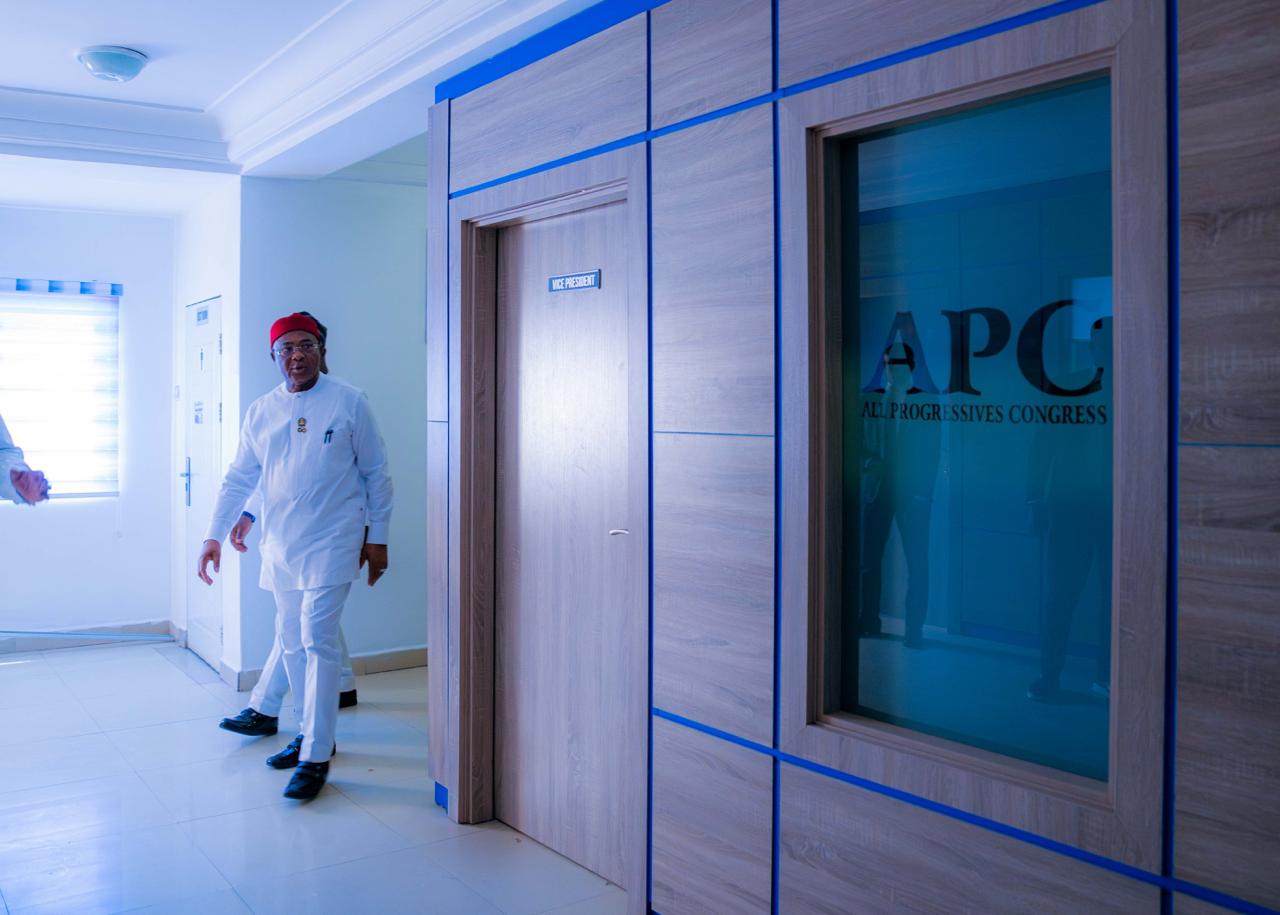
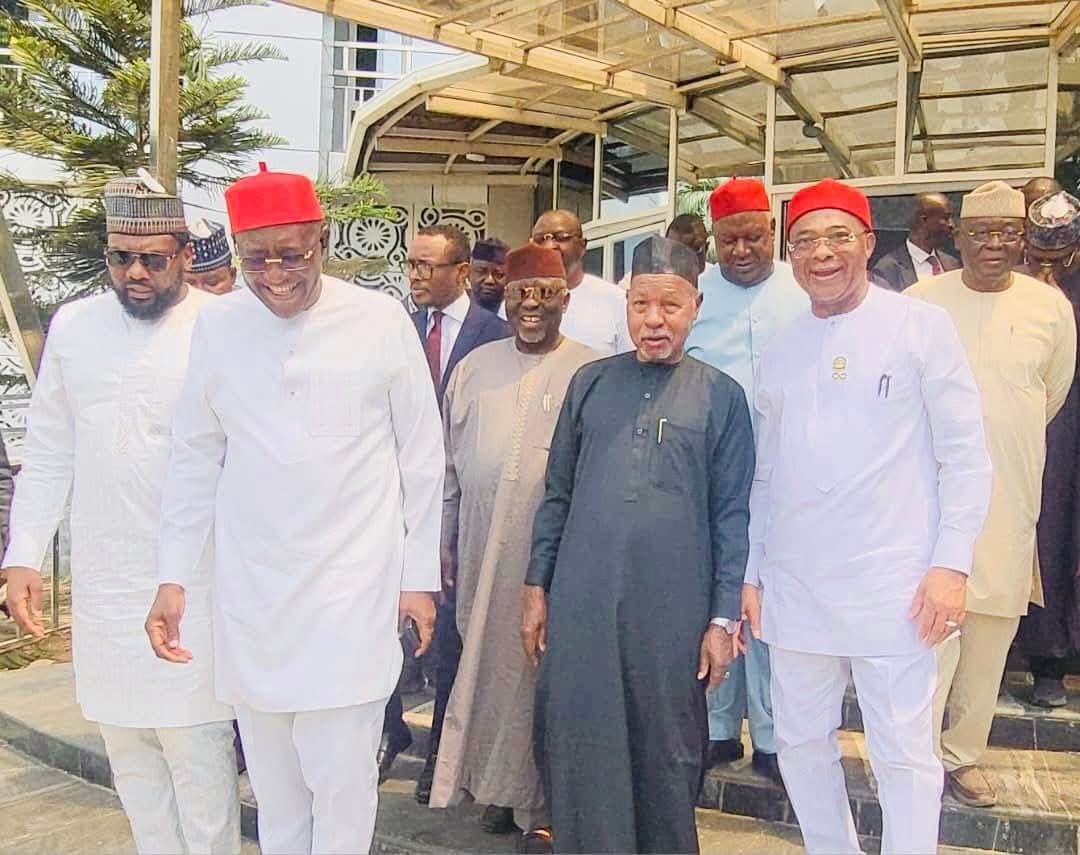
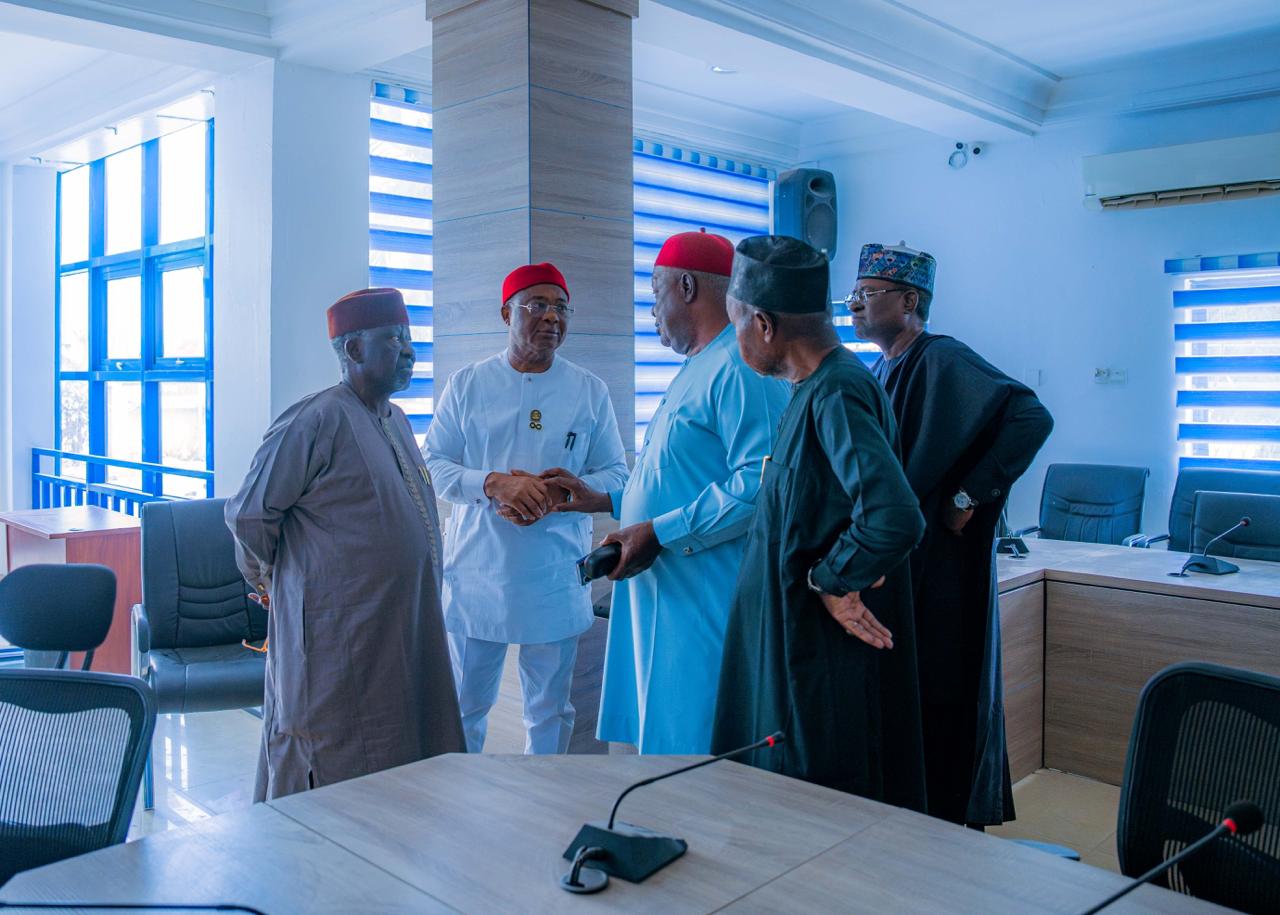
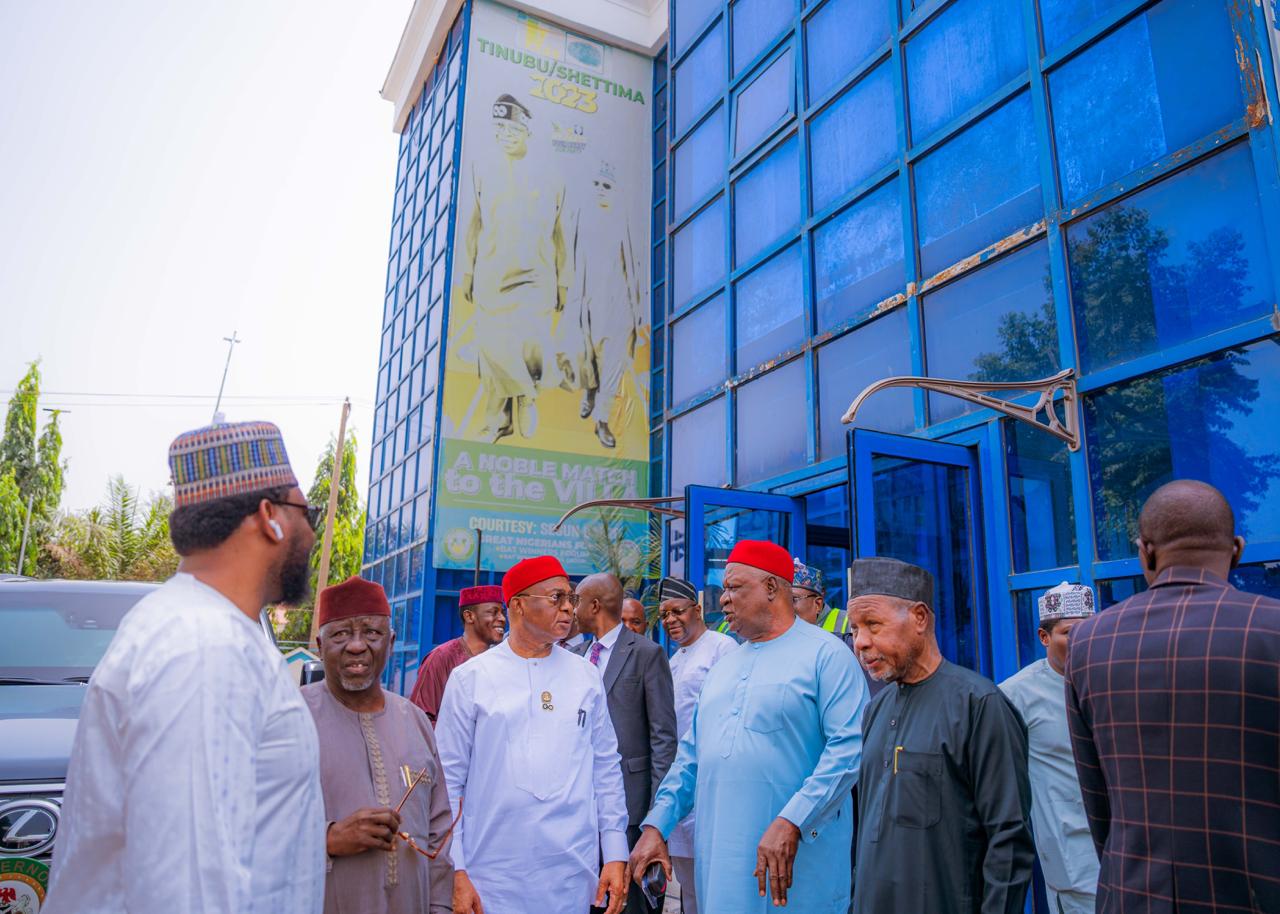

You must be logged in to post a comment Login